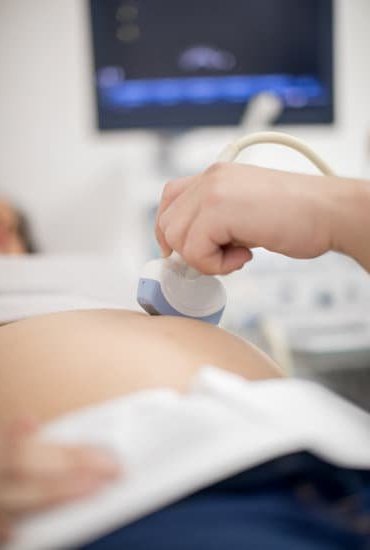When does a pregnancy test work? This is a common question among women who suspect they may be pregnant. Understanding the basics of pregnancy tests can help provide clarity on when to take one and how they work. In this article, we will delve into the science behind pregnancy tests, the different types available, the best time to take a pregnancy test for accurate results, and other important factors that can affect accuracy.
Pregnancy tests are used to detect the presence of the hormone hCG (human chorionic gonadotropin) in a woman’s urine or blood. This hormone is produced by the placenta shortly after a fertilized egg has attached to the uterine lining. Understanding how pregnancy tests work involves understanding how they detect this hormone and provide an indication of pregnancy.
In this comprehensive guide, we will explore everything you need to know about pregnancy tests. From understanding the science behind them to interpreting results and knowing when to take one, we will provide you with all the information you need to make informed decisions about your reproductive health. Whether you are trying to conceive or worried about an unexpected pregnancy, knowing when and how a pregnancy test works is essential.
How Pregnancy Tests Work
Pregnancy tests work by detecting a hormone called human chorionic gonadotropin (hCG), which is produced by the placenta after a fertilized egg attaches to the uterine lining. The production of hCG begins when the embryo implants in the uterus, which usually occurs about six days after fertilization.
It is important to note that hCG levels double every 2-3 days in early pregnancy, which means that the accuracy of a pregnancy test can also depend on the timing of when it is taken.
There are two main types of pregnancy tests: urine and blood tests. Urine tests, which are commonly used at home, detect hCG in the urine, while blood tests check for hCG in the blood. Both types of tests can be highly accurate, but blood tests can detect lower levels of hCG earlier than urine tests, making them more sensitive and able to provide results sooner.
The accuracy of a pregnancy test also depends on how well it is used. Following the instructions provided with the test kit is crucial for obtaining reliable results. Factors such as using an expired or defective test, not taking the test at the right time of day, and not following proper testing procedures can all affect accuracy. Understanding how pregnancy tests work and their limitations can help individuals obtain better results and avoid unnecessary stress or confusion.
| Pregnancy Test Types | Detection Sensitivity |
|---|---|
| Urine Test | Detects hCG when levels reach about 25 mIU/mL |
| Blood Test | Can detect hCG as low as 5 mIU/mL |
Types of Pregnancy Tests
There are two main types of pregnancy tests that you can take at home: urine tests and blood tests. Urine tests, which are the most common type of pregnancy test, can be taken at home using over-the-counter kits.
These kits detect the levels of human chorionic gonadotropin (hCG) in your urine. On the other hand, blood tests, which are performed at a doctor’s office or clinic, can detect hCG in your blood and can provide more accurate results than urine tests.
Within the category of urine tests, there are two different options available: standard pregnancy tests and digital pregnancy tests. Standard pregnancy tests use a chemical reaction between your urine and a dye that changes color to indicate a positive or negative result. Digital pregnancy tests, on the other hand, display the results as words such as “pregnant” or “not pregnant” rather than as lines or symbols.
When it comes to blood tests, there are two types: quantitative and qualitative. A quantitative blood test measures the exact amount of hCG in your blood, whereas a qualitative blood test simply confirms whether hCG is present or not. Blood tests are often more sensitive and can detect lower levels of hCG than urine tests, making them more reliable for early detection of pregnancy.
Overall, when considering which type of pregnancy test to take, it’s important to weigh factors such as cost, convenience, and accuracy. Understanding the differences between these options can help you make an informed decision when does a pregnancy test work and choose the best option for your needs.
When to Take a Pregnancy Test
When you suspect that you might be pregnant, it can be tempting to take a pregnancy test as soon as possible. However, for the most accurate results, it’s important to wait until the right time. In general, most pregnancy tests are designed to detect the hormone human chorionic gonadotropin (hCG) in your urine or blood. This hormone is produced by the developing placenta shortly after a fertilized egg attaches to the uterine lining.
If you’re wondering when does a pregnancy test work best, it’s typically recommended to wait until after you’ve missed your period. This is because hCG levels may not be high enough to detect early in a pregnancy. If you do decide to take a test before your missed period, be aware that you may get a false negative result, leading to unnecessary confusion and anxiety.
For those with irregular cycles or who are unsure of their ovulation date, waiting at least 2-3 weeks after potential conception is advisable for more accurate results. Keep in mind that different types of pregnancy tests may have varying sensitivity levels and testing guidelines, so always read and follow the instructions provided with the test.
To help you determine the best time to take a pregnancy test based on your individual circumstances, here are some key factors to consider:
- Your menstrual cycle regularity
- The date of potential conception
- The sensitivity level of the test being used
Factors That Affect Pregnancy Test Accuracy
Pregnancy test accuracy can be affected by several factors, and considering these can help ensure more reliable results. Here are some important factors to consider:
- Timing: One of the crucial factors affecting the accuracy of a pregnancy test is timing. It is recommended to take the test at least one week after a missed period for the most accurate results. Testing too early may result in a false negative.
- Quality of the Test: The quality of the pregnancy test can also have an impact on its accuracy. Higher quality tests with better sensitivity levels are more likely to provide accurate results, especially when taken at an early stage of pregnancy.
- Follow Instructions Carefully: Following the instructions provided with the pregnancy test kit is essential for accurate results. Improper usage or misinterpretation of results can lead to unreliable outcomes.
Additionally, certain medications and medical conditions can also affect the accuracy of a pregnancy test. For instance, fertility medications containing hCG (human chorionic gonadotropin) or certain medical conditions such as ovarian cysts or menopause can produce false positive results on a pregnancy test.
It’s important to keep these factors in mind when considering taking a pregnancy test to ensure that you get the most accurate and reliable results possible. If there are any doubts or concerns about the testing process, it’s always best to consult with a healthcare professional for guidance.
False Positive and False Negative Results
What Is a False Positive Result?
A false positive result occurs when a pregnancy test indicates that a person is pregnant when they are not actually pregnant. This can happen due to various reasons, such as certain medications, medical conditions, or improper use of the test. It is essential to consider these factors when interpreting a positive result and consult with a healthcare professional for further testing if needed.
What Is a False Negative Result?
On the other hand, a false negative result happens when a pregnancy test shows that an individual is not pregnant when they actually are. Factors such as testing too early, using diluted urine, or not following the instructions correctly can lead to false negative results. It is crucial to be aware of these possibilities and take precautions to ensure accurate testing.
How to Minimize the Risk of False Results
To minimize the risk of false positive or false negative results, it is important to carefully follow the instructions provided with the pregnancy test. Additionally, waiting until the recommended time frame for testing and avoiding substances that could interfere with the test, such as excessive liquids or certain medications, can help improve accuracy. If there are any doubts about the result, seeking advice from a healthcare provider is always recommended for further guidance.
Interpreting Pregnancy Test Results
Understanding the Results
When taking a pregnancy test, it is crucial to understand what the results mean. Most pregnancy tests will display two lines, with one line indicating that the test is working and the other line showing whether or not you are pregnant. If both lines appear, no matter how faint, it typically indicates a positive result.
Some tests may use a plus or minus sign, or even symbols like “pregnant” or “not pregnant”. It is important to carefully read and follow the instructions provided with the test to accurately interpret the results.
Interpreting Faint Lines
In some cases, you may notice a faint second line on the pregnancy test. While this can be confusing and may lead to uncertainty, it is important to remember that even a faint line should be considered a positive result. The presence of any second line indicates that the test has detected hCG in your urine, which typically only occurs during pregnancy. It’s advisable to retest after a few days if you have received unclear results to ensure accuracy.
Digital Pregnancy Tests
Digital pregnancy tests display “pregnant” or “not pregnant” rather than lines or symbols. These tests are designed for ease of interpretation as they eliminate any confusion from having to decipher faint lines. However, it’s essential to note that digital tests tend to be less sensitive than traditional line indicator tests and may require higher levels of hCG in your system before displaying accurate results.
Signs and Symptoms of Pregnancy
Pregnancy is a significant event in a woman’s life, and knowing when to take a pregnancy test can be crucial in determining the outcome. While some women may experience obvious signs and symptoms of pregnancy, others may not have any noticeable indications until they miss a period. It is essential to be aware of the common signs and symptoms of pregnancy so that you can take a test at the right time for accurate results.
One of the earliest signs of pregnancy is a missed period. When does a pregnancy test work? In most cases, it is recommended to wait until after you have missed your period to take a home pregnancy test for the most accurate results. This is because the level of the pregnancy hormone hCG (human chorionic gonadotropin) in your urine increases significantly after your missed period, making it easier for the test to detect the hormone.
In addition to a missed period, other signs and symptoms of pregnancy include breast tenderness, nausea or vomiting (morning sickness), frequent urination, fatigue, and food cravings or aversions. Some women may also experience light spotting, known as implantation bleeding, which occurs when the fertilized egg attaches to the uterine lining. If you are experiencing any of these symptoms and suspect that you might be pregnant, it is advisable to take a home pregnancy test to confirm your suspicions.
Conclusion
In conclusion, understanding when a pregnancy test works is crucial for anyone who suspects that they may be pregnant. The timing of taking a pregnancy test plays a significant role in the accuracy of the results. It is recommended to wait until at least one week after a missed period to take a pregnancy test for the most reliable outcome.
However, some early detection tests claim to provide accurate results as early as 6 days before a missed period. It’s important to keep in mind that the hormone hCG needs time to build up in your system in order for a pregnancy test to detect it.
Another factor that affects the accuracy of a pregnancy test is choosing the right type. With various options available such as digital, strip, and midstream tests, it’s essential to choose one that suits your needs and preferences. Some tests are more sensitive than others and can detect lower levels of hCG, providing earlier results. Additionally, factors like medication, fertility treatments, and medical conditions can also impact the accuracy of a pregnancy test.
It’s important to remember that no matter the result, seeking professional medical advice is always recommended if you suspect you may be pregnant or experience any symptoms associated with early pregnancy. Whether hoping for a positive or negative result, knowing when and how to take a pregnancy test can provide peace of mind and clarity during what can be an emotional and anxious time.
Frequently Asked Questions
How Soon Will a Pregnancy Test Read Positive?
A pregnancy test typically reads positive about 10-14 days after conception, which is usually around the time of a missed period. However, some tests can detect pregnancy even earlier. It’s important to follow the specific instructions of the test you’re using.
How Soon After Unprotected Can I Test for Pregnancy?
If you’ve had unprotected sex and are concerned about pregnancy, you can take a pregnancy test about two weeks after the sexual intercourse. This allows enough time for the hormone hCG to build up in your system if you’ve become pregnant.
How Soon Can You Tell if You Are Pregnant?
Some early signs of pregnancy, such as a missed period, breast tenderness, nausea, or fatigue, may be noticeable within the first few weeks after conception. However, it’s best to confirm pregnancy with a home pregnancy test or visit to your healthcare provider for accurate results.

Welcome to my fertility blog. This is a space where I will be sharing my experiences as I navigate through the world of fertility treatments, as well as provide information and resources about fertility and pregnancy.





